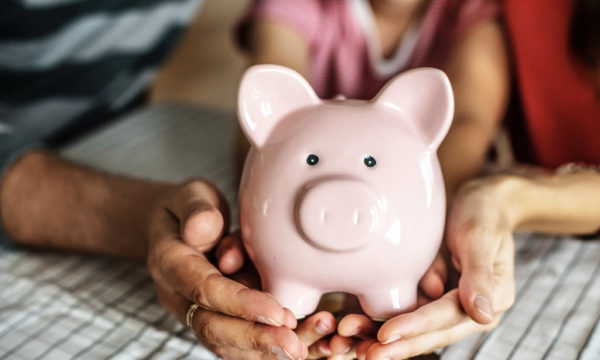Recovering mentally and physically after an accident

Recovering from an accident involves much more than physical healing; mental health can also be significantly impacted. Common challenges for individuals who have sustained injuries include not only the physical pain but also the emotional stress that accompanies the healing process. Coping with the aftermath of an accident can be an exhaustive, frustrating, and often frightening journey, characterised by feelings of helplessness due to the lack of control over the situation.
During the recovery phase, it’s not uncommon for individuals to experience a range of emotions, from shame and sadness to fear, anger, and even depression. This emotional turmoil may lead to a desire for isolation, turning away from social contacts, including family and friends. The severity of injuries and the duration of the recovery period can sometimes contribute to a sense of numbness and disconnection.
Acknowledging these feelings as part of the recovery trajectory is important. Support from loved ones is a critical component of the healing process, providing both emotional and practical assistance. This article aims to offer valuable insights and guidance on improving both mental and physical wellbeing during such challenging times.
How long does your body need to recover?
The length of the recovery varies from one case to another. Several factors impact the process, and it’s recommended to discuss it with your doctor to help you figure out what to expect from it. Your overall health state before the accident, the severity of the health issues, and the type of injuries are some of the factors that impact the recovery length.
In case the accident caused complex injuries, you might need to spend some time in the hospital, and it could take you from a couple of weeks to even years to recover your health. Sadly, often it’s challenging to say how long recovery takes until you reach maximum medical improvement or your condition heals.
However, it’s crucial not to do anything to rush through the recovery process. Your body might not be able to handle some of the activities you engaged in before the accident.
How to support the recovery process
Regular checkups
You need to be cautious when recovering from accident injuries, and the best way to ensure you’re on the path to recovery is to visit the hospital or medical clinic regularly. The doctor will check on your health state to evaluate your health state and monitor your injuries. They can adjust your treatment plan According to how your bruises, broken bones, and other injuries look.
Your doctor will most likely tell you how often you should visit the hospital so they can identify any symptoms that might suggest your health is deteriorating. Make sure to inform them of any new mental or physical symptoms you might experience (depression, anxiety, headaches, or numbness).
Hydrate and rest
Sometimes, the recovery process takes longer because people ignore taking some steps to support their body healing. It’s vital to take some downtime and allow your body to work its way to healing. You might have to spend more time in bed than you’re used to, but don’t stress yourself out because you’ll get back to your daily activities before you know it.
Besides resting, your body also needs hydration to produce new cells and replace the damaged ones. By drinking plenty of water and natural fruit juices, you can help your body repair damaged tissue.
Exercise if your doctor allows it
During your recovery, you might be able to engage in physical activities, even if they might not be as intense as before the accident. According to specialists, being active can help your body recover its strength and keep mental health issues at bay. If your injuries aren’t too severe or your doctor recommends exercising to boost recovery, ensure you get out of the house and engage in physical activities.
Before starting a new exercising program, discuss with your doctor and go through the workout routines so they can recommend ways to adjust them. The average recovery plan includes low-impact training and activities like yoga, stretching, and a couple of weight-lifting exercises that promote healing.
Eat healthy and nutritious meals
Besides exercising and physical therapy (if your doctor recommends it) you should also pay extra attention to what you eat because the nutrients from food can speed up healing. Your goal is to include foods and drinks rich in vitamins and proteins in your diet to improve your bodily functions.
It would be best to make a meal plan for the entire week and stick to fixed meals and snacks. You could eat eggs and oatmeal for breakfast, turkey or fish and salad for lunch, and chicken and beans for dinner to reduce inflammation and pain.
Ways to improve your mental health
Control what you can
Most people suffering from accidents require recovery and treatment, so you’ll have to follow the same path. However, while you might not have control over the time required to improve your health state, you can ensure that those at fault for your accident pay. You’ll find everything you need to know about claiming compensation on the website https://www.howmuchcompensation.co.uk/. Knowing that a professional helps you get the needed compensation for injuries could be of great help.
Accept your feelings and ask for help
Accident-related injuries can cause mental health issues like anxiety, depression, and PTSD. Depending on the type of accident you suffered (accident suffered at a high speed, gunshot wound, motorcycle accident, workplace accident), your trauma can also trigger PTSD. All kinds of injuries are traumatic, and it’s often challenging to deal with their extent on your own. Asking for help is crucial because PTSD and other mental health issues can make it difficult even to do simple daily activities like paying bills, shopping for groceries, bathing, and doing household chores.
Talking with your family and friends could help you feel better and cope with your emotions and negative thoughts. It’s also recommended to seek therapy and consult a professional who can help you find ways to control your obsessive thoughts and deal with symptoms like insomnia, difficulty concentrating, and irritability.
Final words
It’s easy to fall into negative thinking when your recovery takes longer than expected, but with the right help, you can improve mental health.
The editorial unit






















Facebook
Twitter
Instagram
YouTube
RSS